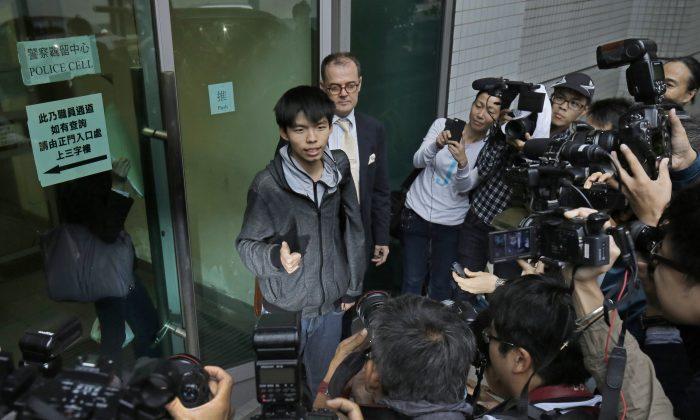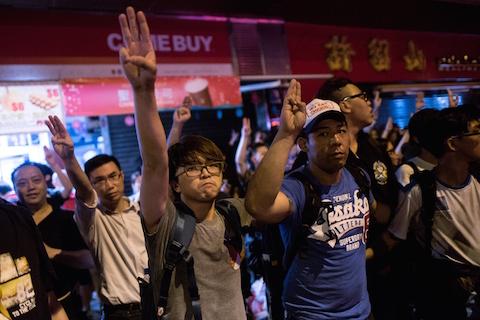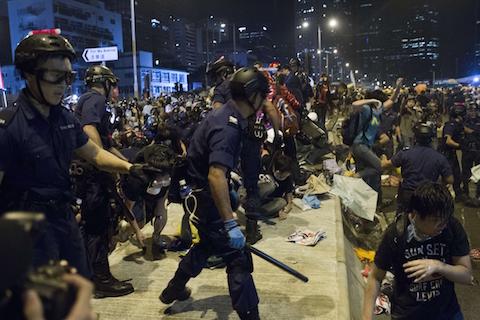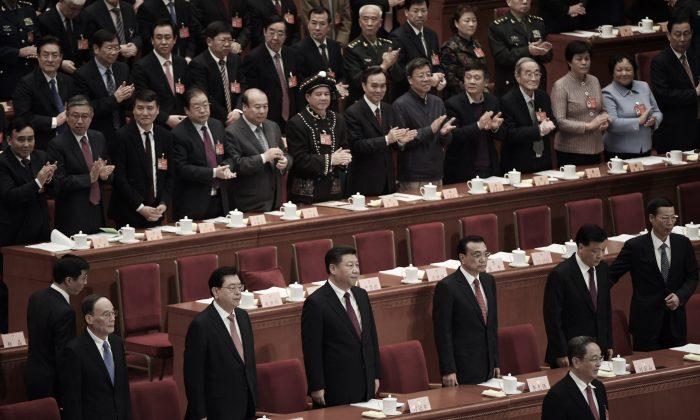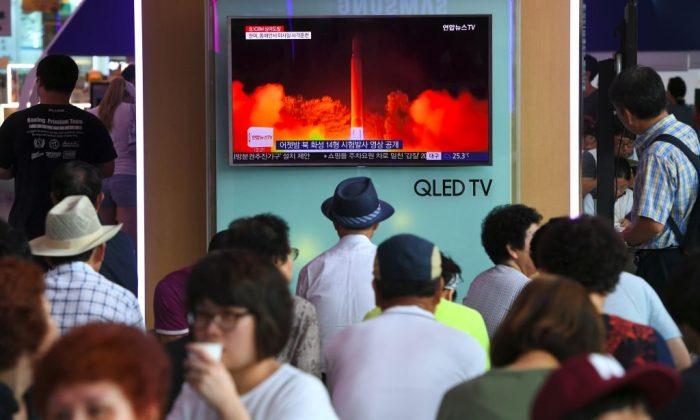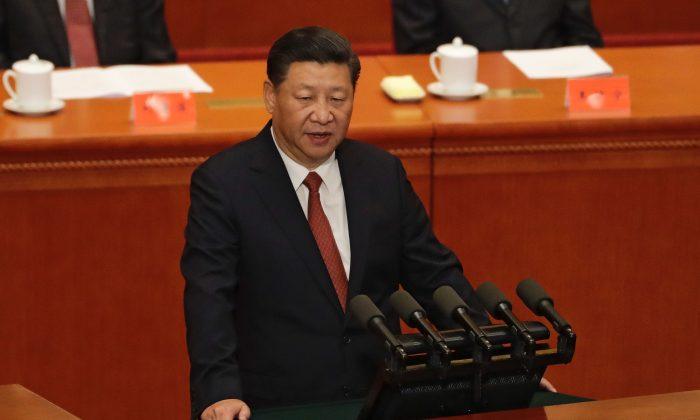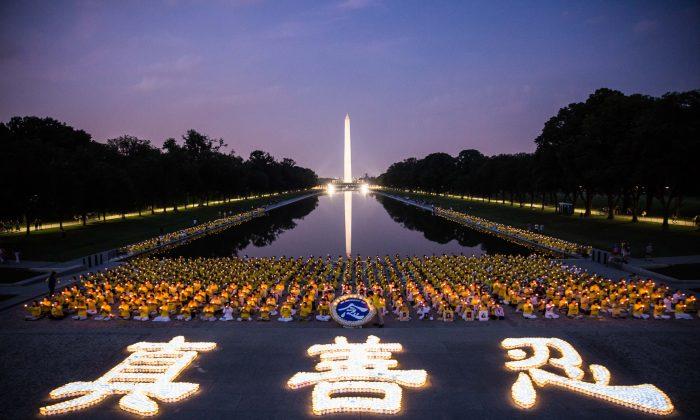Umbrella Movement protesters started giving the three-finger “Hunger Games” salute after watching the “Mockingjay” trailer in Mong Kok, but Joshua Wong’s decision to go on hunger strike today is inspired by desperation, not fiction.
Speaking from a makeshift stage at the main protest site in Admiralty, the 18-year-old leader of the student group Scholarism said he and two female Scholarism members, Isabella Lo and Prince Wong, will forgo food from Monday, Dec. 1, until the Hong Kong government restarts talks on democratic reform with students.
Quick note. The other 2 Scholarism member on hunger strike are the 2 girls in the middle. pic.twitter.com/j9iKwZTpaG
— TranslateUmbrellaMvt (@TranslateHK) December 1, 2014
“We are disappointed by the government’s indifference to the Hong Kong public’s demand for universal suffrage, and we are saddened by the overuse of violence by the police,” Scholarism said in a Facebook post after Wong’s announcement.
//
“In the past 60-odd days, Hong Kong has changed,” the post continued. “The values that Hongkongers hold so dear—equality, freedom and justice—have all been ebbed away and destroyed … we have no other way when facing a broken government but to let go our bodily desires.”
MORE: Joshua Wong Profile: Hong Kong Protest Movement’s Unlikely Teen Leader
In a separate statement on his personal Facebook page, Wong said: “You may not approve of our hunger strike, but we are proceeding with this as a last resort to prevent the Umbrella Movement from stagnating since we no longer have the resources to escalate the protests.”
“We hope that the Umbrella Movement can refocus its efforts towards securing political reform.”
Wong, who rose to prominence in 2012 as a 14-year-old protesting Beijing’s “national education” reform, will carry out the hunger strike on Tim Mei Avenue, which is near the government offices that pro-democracy protesters tried to blockade on Sunday.
In a night of back-and-forth occupation and seizure, thousands of protesters clashed with police over control over Lung Wo Road, a major road outside government offices in Admiralty. Police drove protesters off the road twice, and at the break of dawn, pushed them back all the way to the Admiralty protest site at Harcourt Road.
The organizers of the blockade, the Hong Kong Federation of Students, declared the attempt to escalate the protests a failure.
“The whole plan did not achieve its objective of paralyzing government,” said Alex Chow, the HKFS secretary-general, according to the South China Morning Post (SCMP).
The latest fracas did, however, succeed in widening a rift between the “frontline” protesters and the student leaders.
“All you do is grab the stage and chant slogans. We’ve listened to this crap for more than 60 days,” one masked protester shouted at the HKFS student leaders while police were pushing protesters to the makeshift stage in the morning, SCMP reports.
Later that night, HKFS and Scholarism student leaders bowed and apologized for the night’s disorganized action, and explained that they never “abandoned” the “frontline” protesters because they have “internal division of labor.”
Alex Chow: some ppl say I don’t have right to speak as I have not been hit. All I can say is again is I am sorry. pic.twitter.com/uG9kASs8GV
— TranslateUmbrellaMvt (@TranslateHK) December 1, 2014
Joshua: We have internal division of labor. We’ve never abandoned frontliners & our members were also on front line. pic.twitter.com/FWgWi7pUfe
— Ellie Ng (@elliepng) December 1, 2014
Joshua Wong’s hunger strike announcement came after the HKFS representatives’ speeches, but he received a lukewarm response.
According to the Guardian, a masked protester by the name of “Cherry” asked: “We have been on the streets for two months, and now it is getting damp and cold. Still the government is so heartless and refuses to talk to us.
“Will they care if we starve ourselves?”
Frontliner: Joshua Wong on hunger strike? Illogical. They just want to be hospitalized & call it a “glorious retreat” pic.twitter.com/aaYHgqYSjb
— Ellie Ng (@elliepng) December 1, 2014
